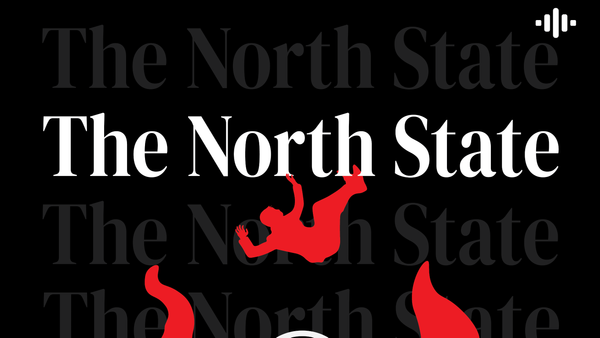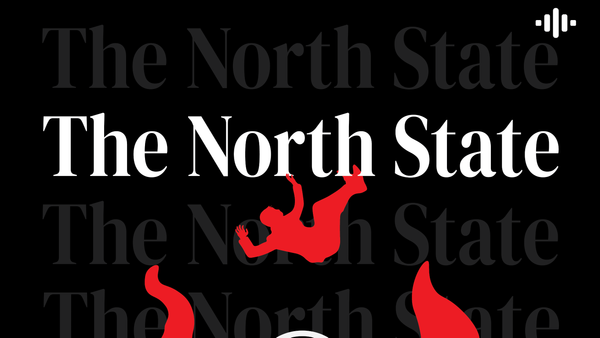One Year of the Meta News Ban
How has the industry responded in the past year?

Correction: I have been informed (and subsequently verified) that Threads allows news links in Canada. The original version of this article responded to Adam Mosseri's comments as though Threads also banned news links in Canada. I'm perplexed as to the implications of this, but I have edited the piece to reflect this development.
Meta, the company behind social media giants Facebook and Instagram, officially blocked access to news in Canada on August 1, 2023. The de facto ban was introduced in response to the Online News Act, federal legislation which requires big tech companies to pay media outlets for news that's shared on their platforms. Meta steadfastly refused to contribute to the flawed plan to add revenue to Canadian news outlets, with a representative stating they hope the Canadian government "will recognize the value we already provide the news industry."
Shortly after the ban, Canada's infamous wildfire season kicked into full gear, with communities not receiving news through their expected channels. Big tech was flexing its muscles, and the negative effects were felt instantly.
It's been just over a year since the Meta news ban, and there has been a notable decline in access to journalism, but also in the quality of news that Canadians are receiving. Let's examine the effects of the Meta news ban, and how it's impacted all the players involved.
Big Tech's War on News
Let's start with Meta.
Threads, the Twitter clone by Meta, was launched just under a month before the official ban on news in Canada began. Even though, at this time, they had tested the ban on individual Canadian Facebook and Instagram users. Threads was launched with this factor in mind, as CEO Adam Mosseri declared the platform would move away from news and politics.
"Politics and hard news are inevitably going to show up on Threads..." Mosseri wrote in a Threads post, apparently forgetting to mention this was not the case for Canadians on other Meta platforms Facebook and Instagram. "...but we're not going to do anything to encourage those verticals."
A year later, in an interview with Platformer's Casey Newton, Mosseri clarified that the news on Threads would simply be for general interest, rather than information about your government or community.
"[W]e do need to be a place for news. I just don't think that it's our place to be showing you political takes from people you don't follow [emphasis in original]."
Threads and their overall approach to news, alongside their actions in Canada, provides an instructive example of how Zuckerberg's empire views journalism as a whole. After building their platform partially on the spread of news, it's now viewed as superfluous and unnecessary, especially once they're compelled to provide financial compensation.
The omission of mentioning news in Canada by Mosseri, and Meta's move away from news in general, has real-world consequences for citizens of other countries. After Meta pulled the plug on news in Canada, they announced intentions for doing the same in Australia. Their tune was different in 2021, when the Australian law was introduced. At the time, Meta made deals with both News Corp and the Australia Broadcasting Corporation for licensing fees. In March, however, they announced they would not renew the deals. The company reiterated this plan to block news in Australia in June of this year. Since February, they've abandoned their News tab entirely, and let licensing deals with US news outlets expire, as well.
Meanwhile, reports indicate that Meta continues to allow bigotry and damage to underaged users to run rampant on their platforms. Instead of prioritizing news, Facebook's algorithm has been reported to boost AI spam that funnels users into scam websites. Engagement for the least investment possible is what matters to big tech. We've seen that dynamic rapidly deteriorate the quality of content in the past year for every user. On Instagram, Meta sneakily introduced a default filter on political content into users’ accounts.
While news is absent from Canadian feeds, the rest of the world isn't faring much better.
For their part, Meta hasn't seen any negative consequences in their decision to ban news from Canadian feeds. In an article by AdNews, they detail one of the company’s submissions to an Australian committee on social media. Meta stated, "We have not identified any other notable impacts to our business in Canada or around the world as a result of ending news availability in Canada." That's right, time spent on Facebook, according to them, grew after the Meta news ban.
Unless there are tangible consequences enforced by the federal government against Meta, it's unlikely they ever will.
Canada's Diminished Access to News
As the example of news on 2023 wildfires indicated earlier, Canadians immediately felt the tangible effects of losing a main avenue for accessing news. If this was felt immediately after the ban was implemented, what have the effects been after a year?
Well, as one Toronto Star article puts it, it's primarily meant "Extremely bad news." A study conducted by McGill and University of Toronto found that there has been a 42.6 per cent drop in public engagement with news through social media, while those who actively seek out news are in the minority of Canadians.
Additionally, the news itself is now being delivered in a far more biased manner. Memes are more often the vehicles for news, rather than articles. While this primarily benefits right-wing perspectives, it's certainly had an effect in promoting a general misinformation atmosphere across political lines. There have been ways around the ban, notably, from those sharing screenshots of news articles, rather than the articles themselves. But as anyone with a passing knowledge of the internet knows, screenshots can be easily faked.
Currently, the effects of the ban are abstract, but they're almost certainly being felt on a widescale level.
An article from The Tyee on the study interviewed the project lead and director of the Media Ecosystem Oberservatory Aengus Bridgman on its implications. They're grim. "Meta's decision [is] straight up hurting Canadian democracy, hurting the abilities for Canadians to learn about their political world and get well informed."
Despite this, the study also found that "three-quarters of Canadians" are unaware there was even a news ban on Meta platforms. The lost traffic hasn't occurred in any other channels, even though new content on Twitter (now known officially as X) remained steady, and TikTok news notably increased. In a significant way, Canadians are increasingly unaware that they're even unaware.
What does this mean? An internet environment plagued by AI images, disinformation, rising engagement and an absence of official news channels spells disaster for the average Canadian. Information has been pushed to the back of the line. The current social media environment prioritizes news in a format that frontloads engagement. The easiest way to get engagement, of course, is outrage, salacious headlines and whatever cheap tactics it takes to get interaction.
Canadian Journalism's Decline
Meta's news ban was not the final nail in journalism's coffin, but it certainly added more fuel to the industry’s ever-expanding fire.
The largest news organizations that would have been the primary benefactors of Meta payouts supported the passage of the Online News Act. News Media Canada, which lobbied for the legislation, proudly welcomed the passage of the bill. The organization counts Postmedia, The Globe and Mail and Torstar among their members.
Smaller publishers, naturally, were affected far more by the ban. In a story on the ban one year on, CBC News highlighted the struggle of small-town newspapers like the River Valley Sun in New Brunswick, alongside the study mentioned in other articles so far.
Hubris in the journalism industry for the short-sighted belief that big tech would act in bigger faith has changed their approach in ways beyond constant and troubling layoffs.
Andrew Coyne, columnist for The Globe And Mail, declared that the federal government should stop giving newspapers money. When writing on Meta's complete blanket ban on news, Coyne said "the government had calculated that Facebook was bluffing. It wasn't." Coyne mentions News Media Canada when referring to figures, but fails to mention his employer's role in lobbying for the bill to be passed.
Indeed, Coyne characterized Google's payment scheme as the "ludicrous link tax" after lambasting the government's failure to prop up the newspaper industry.
Post your salary, Coyne.
Abdication of responsibility by journalistic outlets permeates the background of these conversations. Much like Bell Media's blaming the government for its layoffs, any attempt to build a large-scale alternate ecosystem for distributing news has been ignored by the largest companies in the industry.
That's not to say there’s been no attempt at the lower level to mitigate. Unrigged, a platform intended to showcase progressive news outlets, was created in response to the Online News Act. The publications who joined together were much smaller news rooms that needed to supplant their lost traffic through other means.
But it’s undeniable that the desperation for traffic and the decimation of news rooms has driven down the quality of journalism.
Michelle Cyca, writing for The Walrus, wrote on the outrage cycle in news. While she doesn't mention the Online News Act or Meta directly, Cyca tackles an increasing issue in how journalism is conducted. It becomes clear that outrage farming of social media posts for news is a partial result of the ban.
"The incentives are clear: playing to outrage is an effective tool for driving traffic, even when the news value is negligible."
In a 404 Media article that touches on similar themes (albeit in the tech context), Jason Koebler wrote on tech journalism's obsession with baselessly reporting Elon Musk's random Twitter musings.
This type of post has historically “worked” for these outlets, in that lots of people do—or used to—read these sorts of articles because they happened to come across it on Google. They are articles written in hopes of appeasing a search algorithm at Google, a company that is looking to replace this type of coverage with AI answers that keep people on their own platform and discourage them from clicking through
AI and Google's role in the continued decimation of news, even with Google's deal with the federal government, has not received focus in this article due to length. Rest assured, it's not a safe bet to assume that Google will continue to play ball, considering their reported behaviour in boosting AI-generated trash in their Google News feature. Higher focus on the AI boom at the expense of news is something that Google is perpetuating no matter their deal with the federal government.
Journalism that requires more output at less quality to make up for Meta's drop in traffic is a catastrophic formula. It will fail. So yeah… journalism is not doing great.

Where to Go From Here?
Solutions to the Online News Act debacle remain scarce. Unrigged is a rare example where news outlets have attempted a solution to work around the loss in traffic, but a systemic overhaul is very much necessary.
As I argued when Meta first announced its news ban, losing Meta is not necessarily a bad thing. The Big Tech information strangulation should be broken. News organizations not being held hostage by social media corporations owned by US billionaires is good, actually. The problem arises when there is no tangible solution is presented.
The Online News Act was meant to push the burden of paying news agencies onto Big Tech. Federal government subsidies provide millions to (primarily large) news outlets. However, even with this funding, layoffs and decimation continue to be widespread. Surprise surprise, funnelling public money into poorly run private organizations doesn't end up well.
Since the Liberals have hung their entire Meta fight on the Online News Act, they are continuing to pursue consequences under that umbrella. The CRTC has yet to land on what this could, or could not, mean for the company. Meanwhile, the Conservatives are (rightfully) blaming consequences of the bill on the Liberals. Unsurprisingly, they propose an alternative that doesn't result in rewarding Meta for their defiance. The Meta ban catastrophe will affect the Liberal's reelection prospects, to be sure. But its utility as a political football by opposing parties will be left up to them to decide.
Unless we expand the scope to completely reevaluate the role of news and its utility in our society, it's likely the situation will continue to deteriorate. Appeasement of tech billionaires should not even be a path to consider. We should focus on publicly funded social media platforms and restructuring subsidies to focus on local, small news rooms, co-operatives or start-ups.
Until that reality is confronted, the quality of news that informs the wider public will continue to degrade and shrink. So if you can, please support the independent news rooms that do coverage you appreciate. They need it now more than ever.






